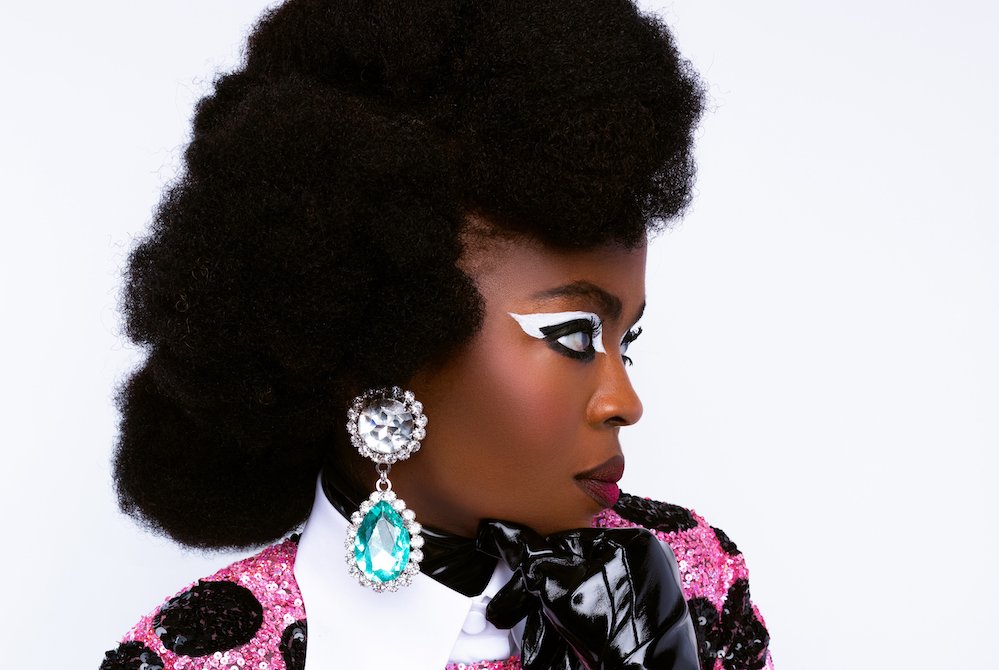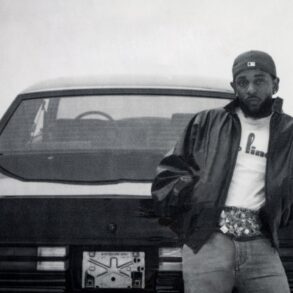
This year, Ms Lauryn Hill celebrates the 25th anniversary of the release of The Miseducation of Lauryn Hill. In 1998, aged 23 and at the beginning of her solo career having just left the hip-hop group Fugees, Hill released her first and only studio album.
From beginning to end, the album is draped in themes of love, heartache, self-worth, spirituality, and motherhood. A fusion of hip-hop, R&B, and reggae were embedded in the album to create a listening experience that was original yet classic, universal yet visceral.
The album went on to win five Grammy awards in 1999, including Album of the Year, making Hill the first woman to ever win that many awards in a single night. Her album win also helped bring hip-hop into the mainstream. Decades later and we can still see the album’s impact today with artists from Beyoncé to Nicki Minaj to Janelle Monáe claiming it as an inspiration.
Indeed, the album’s impact, particularly for Black women, cannot be underestimated. Guitarist and radio host, Tracy G, of “Sway In The Morning” spoke about the lasting impact Hill’s album has had: “Twenty years after its release, Hill’s classic body of work has become a staple in the musical diet for countless numbers of Black women. The album centered our complexity, beauty, and humanity in its narrative — something that hip-hop hadn’t really done before. Its legacy will be that of empowerment, grace, and creative exploration from a musician who was fully realized and wanted others to relish in their truths.”
History has seen Black women pushed aside, overlooked, and uncredited. Black women, to this day, have to fight for recognition and equal treatment. The story much of the world knows of Black women is one of struggle, one that says they are objects to either be feared, underappreciated, or unacknowledged. That’s why an album as widely celebrated and with as rich a history as Ms Lauryn Hill’s is important in Black culture and for the celebration of Black women everywhere.
Outside of her music career, Hill is also a dedicated activist. She founded an organization dedicated to serving underprivileged urban youth called the Refugee Project in 1998. Part of this was Camp Hill, which offered stays in the Appalachian mountains for these young people; another was the production of an annual Halloween haunted house. Hill has also raised money for Haitian refugees, supported clean water projects in Kenya and Uganda, and staged a rap concert in Harlem to promote voter registration in 1996.
On Sept. 23, Ms Lauryn Hill will bring both her activism and musical talents to the Global Citizen Festival stage along with fellow headliners Red Hot Chili Peppers, Jung Kook, and Anitta, with Conan Gray, D-Nice, Sofia Carson, and Stray Kids also set to perform. Learn more about the festival and how you can earn tickets here.
In celebration of the 25th anniversary of The Miseducation of Lauryn Hill, here are five reasons the album is essential listening for Black women.
1. It made Ms Lauryn Hill the first Black woman to win a Grammy award in hip-hop.
At the 1999 Grammys, Ms Lauryn Hill’s debut solo album The Miseducation of Lauryn Hill won five Grammys, including Album of the Year, Best R&B Album, Best New Artist, Best R&B Song, and Best Female R&B Vocal Performance — the latter two were both for the hit song “Doo Wop (That Thing).” On the Grammy night, an excited and supportive Whitney Houston presented Hill with the Album of the Year award, a momentous achievement that impacted the history of hip-hop.
This major win brought hip-hop into the mainstream in a way previously unseen and Hill broke a glass ceiling as a Black woman in a male-dominated genre.
“Lauryn Hill’s [Grammy] win is incredibly important, it’s Lauryn being able to win as a female MC, who stood so beautifully in her truth, it was a time when the world listened to the voice of a Black woman and was deeply impacted and shaped by it,” says Dr. Joan Morgan, writer and program director at the center for Black Visual Culture NYU, in the Netflix documentary on women in hip-hop, Ladies First: A Story of Women in Hip-Hop.
2. It taught Black women to take up space in the male-dominated hip-hop scene.
Since the very inception of hip-hop culture, women have been at the forefront of the genre. However, they haven’t always been acknowledged and treated with the same respect as their male counterparts, as reported by Daily Bruin. Add this to the fact that women in hip-hop have traditionally been paid less and have received less attention than their male peers — a gender pay gap that’s reflected across almost every sector and area of life globally.
Hill, both through her album and music career overall, helped bring women in hip-hop to the forefront. She made a name for herself through her debut album. She was no longer in the shadows of her former band, Fugees. At the age of 23, she showed the male-dominated hip-hop scene that she was creating a league of her own by being her authentic self, which inspired other women in the music industry and beyond.
3. She redefined what Black motherhood looked like.
Discussing the impact of Ms Lauryn Hill’s album for women of color, culture writer Pretty Honare explained that women are often told that once they decide to have a child, their professional and personal lives are no longer worth fulfilling and that Hill’s song “To Zion” answers the question: “Can women have both?”
Ms Lauryn Hill rejected society’s notion that a woman must choose between family and a career, as noted by the Huffington Post.
Through her lyrics in the song “To Zion,” Hill affirmed her right to pursue motherhood her way. The track is a love letter for her first-born son, Zion Marley, with whom she was pregnant while creating the album.
According to Blk Girl Culture, in the song, Hill addresses Black motherhood and candidly expresses her intimate feelings about her pregnancy with her first child, her worries and joy about motherhood, as well as the ridicule she faced from others relating to her decision to keep the child.
Black women in the spotlight have been both praised and ridiculed for their pursuit of motherhood while being at the height of their careers, facing unrealistic expectations and pressures.
Recent examples of this include when Yung Miami, from popular hip-hop duo City Girls, announced she was pregnant with her second child in October 2020; fans and detractors questioned how she would be able to continue to work and hold down the group. Similarly, Rihanna’s pregnancy announcement came in the midst of a six-year long plea from fans for new music, who declared on social media they would now never get a new album because of the baby. Cardi B’s first child came at what was described as the “height” and “beginning” of her career, with many saying the pregnancy would derail her success.
However, these Black women have proven to be successful in their careers while also being mothers, and Ms Lauryn Hill was a pioneer of this message.
“To Zion” also reminds Black women and all women across the world and throughout generations that they have the right to have autonomy over their bodies and they have the power to choose the direction of their life, from their careers to their personal lives.
4. The album taught Black women to speak their truth.
“You might win one, but you just lost one,” sings Hill on the second track of her history-making album.
One thing about Ms Lauryn Hill is that she doesn’t hold back, and on the song “Lost Ones,” the singer gets everything off her chest.
This raw hip-hop track teaches women to speak their truth without shame — and in this case, that means telling an ex that they’ve lost the best person they could’ve ever had.
The song “Lost Ones” is one of the greatest diss tracks of all time. The subtle innuendos throughout the track allude to her messy break-up from a former relationship, as well as her split from longtime group members after leaving Fugees. “Lost Ones” is a bold testament to women’s increasingly progressive emancipation from their oppressors.
For years, Black women who have been outspoken about their struggles and advocated for themselves have often experienced their pain being downplayed and made fun of, or have been victimized or labeled “difficult” or “loud.” What’s more, demeaning tropes including “the angry Black woman,” the “sapphire,” and of course misogynoir, have been used to villanise Black women for centuries, according to writer Petiri Ira.
These negative stereotypes have been used as a tool to silence Black women for years. Yet, Ms Lauryn Hill wasn’t afraid to speak her truth and this in itself created a safe space for Black women listening to her album to do the same.
5. It taught Black women about self-love.
In the eponymous track of the album, Ms Lauryn Hill teaches her listeners the importance of self-love, something that Black women have been denied over and over again throughout the years.
Sending a lesson that women are capable of choosing their own destiny, Hill sings in the final verse: “And deep in my heart, the answer, it was in me. And I made up my mind to define my own destiny.”
Jasmine Hill, assistant professor of public policy and sociology at UCLA, spoke to Insider about self-care for Black women in America: “Historically Black women in America have been expected to work, serve others, and support the family unit and community; things like rest, quitting a job, or cutting ties with a loved one that is creating toxicity in your life is a radical act.”
Hill illustrates that she has searched for love and peace in every place and come up short every time; until she came to realize that peace and love come from within.
This post was originally published on this site be sure to check out more of their content.







